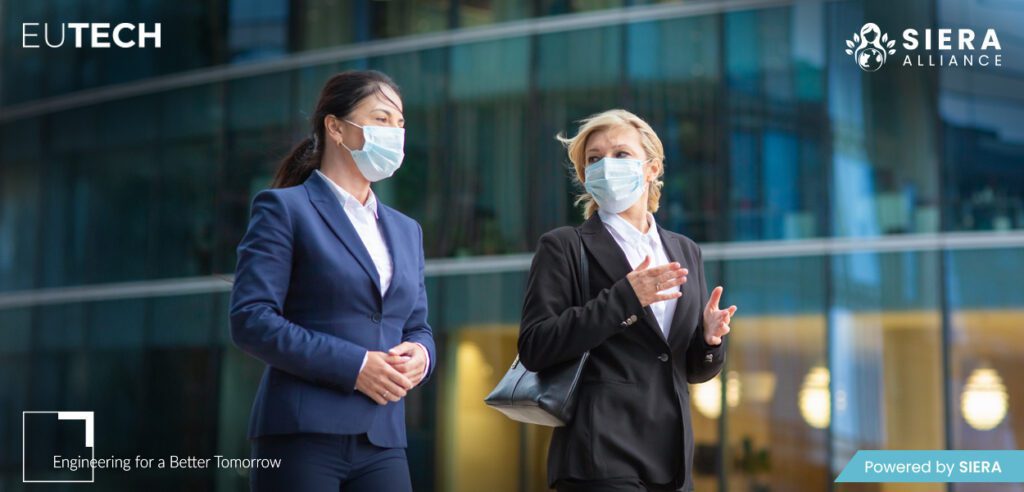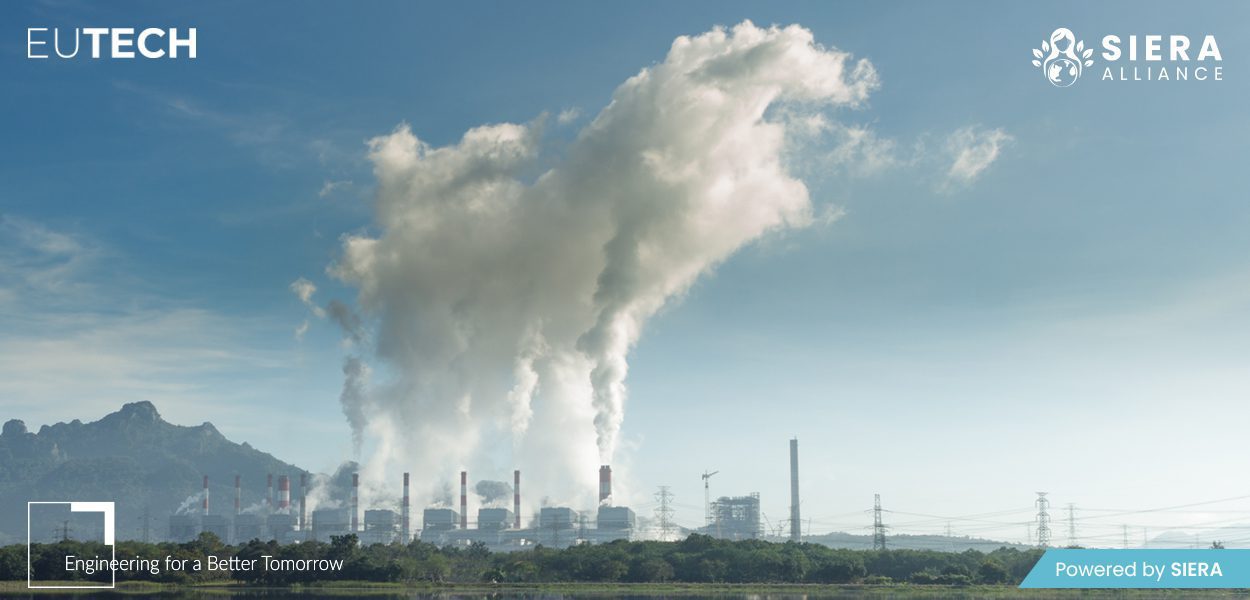A Critical Focus on Pollution Control in Hospitality and Health
The hospitality, health, and leisure sectors are pillars of modern society, serving millions of guests and patients worldwide. However, their operations also generate significant environmental challenges, from excessive energy consumption to waste and water pollution. Adopting effective pollution control strategies is critical to mitigating these impacts and aligning with global sustainability standards like ESRS E2.
On 18th October 2024, the EUTECH – Hospitality, Health & Leisure Council powered by SIERA Alliance hosted a webinar titled “Pollution Control Strategies in the Hospitality, Health, and Leisure Sector.” Moderated by SIERA Alliance, the session featured keynote speaker Versha Chaudhary, alongside panelists Captain Ilias Stefanatos and Javier Garcia Romero. The event provided actionable insights and practical solutions for pollution control across these industries.
Key Challenges in Pollution Control
The panel highlighted five major challenges faced by the hospitality and health sectors:
1. High Energy Consumption and Emissions
The hospitality and health sectors account for approximately 4.4% and 3.5% of global greenhouse gas emissions, respectively. Continuous operations, such as 24/7 lighting and HVAC systems, exacerbate energy demands.
2. Inefficient Waste Management
Healthcare facilities generate around 5 million tons of waste annually, while tourism contributes 35 million tons of solid waste. Poor waste management practices result in pollution that significantly harms ecosystems.
3. Water Use and Pollution
The hospitality sector alone is responsible for 5% of total global water consumption. Inefficient water use and inadequate wastewater treatment contribute to urban water pollution, with chlorine and other chemicals from leisure facilities accounting for 30% of water pollution in some areas.
4. Regulatory Compliance and Reporting Complexity
Around 40% of hospitals struggle to fully comply with EU sustainability regulations, creating challenges for managing pollution control and sustainability reporting.
5. Lack of Sustainable Financing
The global healthcare sector faces a $176 billion annual funding gap for sustainable infrastructure projects, limiting the adoption of pollution mitigation strategies.

Innovative Solutions and Recommendations
The panel discussed several practical strategies for pollution control:
1. Energy Efficiency and Management
Implementing energy audits and Energy Management Systems (EMS), such as ISO 50001, optimizes energy use and reduces costs. Facilities adopting EMS can achieve 10-30% energy savings annually.
2. Comprehensive Waste Management
Adopting the waste management hierarchy, which prioritizes reduction, reuse, and recycling, minimizes waste generation. Advanced waste segregation and hazardous material disposal systems are essential for environmental protection.
3. Water Efficiency and Advanced Wastewater Treatment
Installing water-saving fixtures and greywater recycling systems reduces water consumption by 25% while mitigating urban water pollution.
4. Sustainable Procurement and Partnerships
Collaborating with local suppliers to source eco-friendly materials promotes green hotel practices. Such partnerships also foster community engagement, enhancing brand reputation.
5. Regulatory Compliance Tools
Using digital platforms for real-time compliance monitoring simplifies adherence to pollution control strategies and EU standards, reducing reporting complexity.
Transformation Opportunities in Pollution Control
By addressing pollution control challenges, the hospitality and health sectors can unlock significant benefits:
| Transformation Area | Benefits | Impact |
| Operational Efficiency | EMS systems reduce energy usage and emissions. | Saves up to 30% on operational costs and reduces emissions by 5-15% annually. |
| Waste Reduction and Cost Savings | Proactive waste management avoids fines and enhances reputation. | Compliance with EU regulations prevents penalties and promotes sustainable branding. |
| Optimized Water Use | Advanced systems reduce water waste and operational costs. | Lowers water usage by 25%, improving resource availability and efficiency. |
| Enhanced Stakeholder Trust | Transparent reporting and eco-friendly practices build public confidence. | Attracts environmentally conscious guests and investors. |
| Access to Sustainable Financing | Green bonds and ESG-linked loans support eco-friendly investments. | Enables funding for advanced technologies and pollution control projects. |

Best Practices for Pollution Control in Hospitality
- Conduct Energy Audits: Regular assessments identify inefficiencies and inform targeted energy-saving measures.
- Implement Advanced Waste Systems: Integrate comprehensive systems to manage hazardous and non-hazardous waste effectively.
- Promote Staff and Guest Education: Training programs and informational campaigns encourage sustainable behavior, such as reducing energy and water consumption.
- Leverage Digital Tools: Use technology to monitor compliance and streamline pollution control efforts.
Upcoming Events and Opportunities
Stay updated on future events hosted by the EUTECH Hospitality, Health & Leisure Council powered by SIERA Alliance. For insights into pollution control and sustainability strategies, explore the SIERA Alliance Event Calendar. Join us in shaping a sustainable future for hospitality and health.
Conclusion: Advancing Sustainability in Hospitality and Health
The adoption of effective pollution control strategies is essential for reducing environmental impact while maintaining operational excellence in the hospitality and health sectors. By leveraging innovative technologies, fostering partnerships, and promoting sustainable practices, organizations can align with global sustainability goals and drive long-term transformation. Collaborating with organizations like SIERA Alliance and EUTECHempowers businesses to implement impactful solutions that benefit both the planet and the industry.
To learn more about how SIERA Alliance can support your journey toward sustainability, visit our website. Join us in building a responsible future for hospitality and health.








